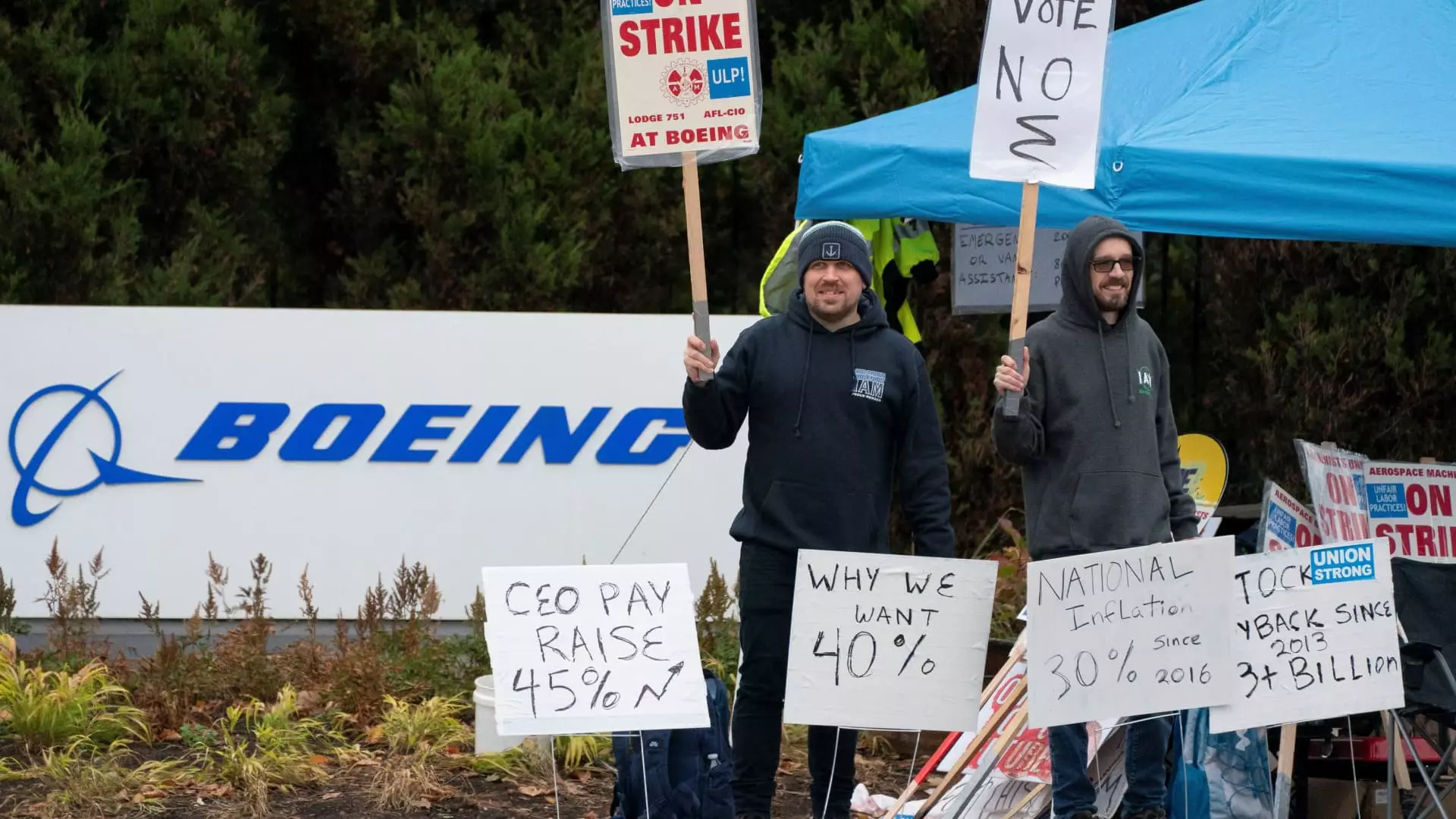Boeing, a major player in the aerospace industry, is currently navigating turbulent waters. For the past seven weeks, more than 32,000 machinists, primarily located in the Seattle region, have walked off their jobs, demanding better pay and working conditions. This strike, instigated by the rejection of a tentative agreement, comes at a time when Boeing is already facing significant challenges, including production delays and mounting financial losses. The machinists’ union, known as the International Association of Machinists and Aerospace Workers District 751, has rallied its members to take a hard stance, suggesting that they reach a breaking point where meaningful concessions may not be extracted any longer from negotiations.
As the clock ticks, the urgency for both parties to come to an agreement grows. A newly negotiated proposal has been put on the table that offers attractive wage increases and a significant one-time ratification bonus. The latest deal proposes a 38% general wage increase over a four-year period, which is a revisitation and slight enhancement from a previous offer of 35%. Compounding effects push the effective wage increases close to an impressive 44%, further sweetened by an option for a $12,000 one-time ratification bonus, or alternative options for those who might prefer a lower initial boost but a longer-term savings strategy through a defined 401(k) contribution. The union, recognizing the extensive sacrifices made by its members, urges a swift return to work, believing that they have made enough progress in their negotiations.
The ramifications of the strike are not limited to the immediate financial strain on Boeing. Production has been brought to a near halt, drastically impacting the broader U.S. economy. The Biden administration has reportedly engaged in the negotiations, which underscores the larger implications of this labor dispute. Recent job reports indicate that the strike has contributed to unfavorable employment statistics, outlining the interlinking of labor actions and national economic health. President Biden himself acknowledged the hard work of both the union and Boeing, emphasizing the necessity for a strong contract that recognizes the sacrifices of workers.
Despite its prominence, Boeing is grappling with persistent issues that include safety concerns and production flaws, contributing to a staggering financial loss of over $6 billion in the previous quarter alone. Problems like a blown door plug from a Boeing 737 Max 9 have not only raised issues about product reliability but also public trust. Furthermore, the decision to relocate the production of the 787 Dreamliner to a non-union factory in South Carolina has sparked dissatisfaction among workers in the Puget Sound area. This has heightened anxieties about job security, particularly as competing tech giants such as Amazon and Microsoft continue to inflate the local cost of living.
Boeing’s leadership, including recently appointed CEO Kelly Ortberg, has stressed the importance of collaboration and the need for a cohesive return to productivity. In a message directed at the workforce, Ortberg underscored the crucial nature of this contract and the collective responsibility resting on employees to rebuild the company’s reputation and output. His plea reflects an understanding of the broader stakes: Boeing is not just tethered to its machinations but also to the livelihoods of thousands of workers and the economic stability of the regions it impacts.
The ongoing negotiations between Boeing and its machinists’ union have highlighted critical intersections between labor rights, corporate governance, and economic imperatives. While the newly negotiated contract offers promising wage increases and bonuses, the future remains uncertain, hinging on the workers’ impending vote. This situation serves as a salient reminder of the vital role that employees play in shaping the corporate landscape, especially amid economic pressures and competitive challenges. Whether or not the deal satisfies the needs of the machinists will largely determine Boeing’s trajectory in the coming months and years.

